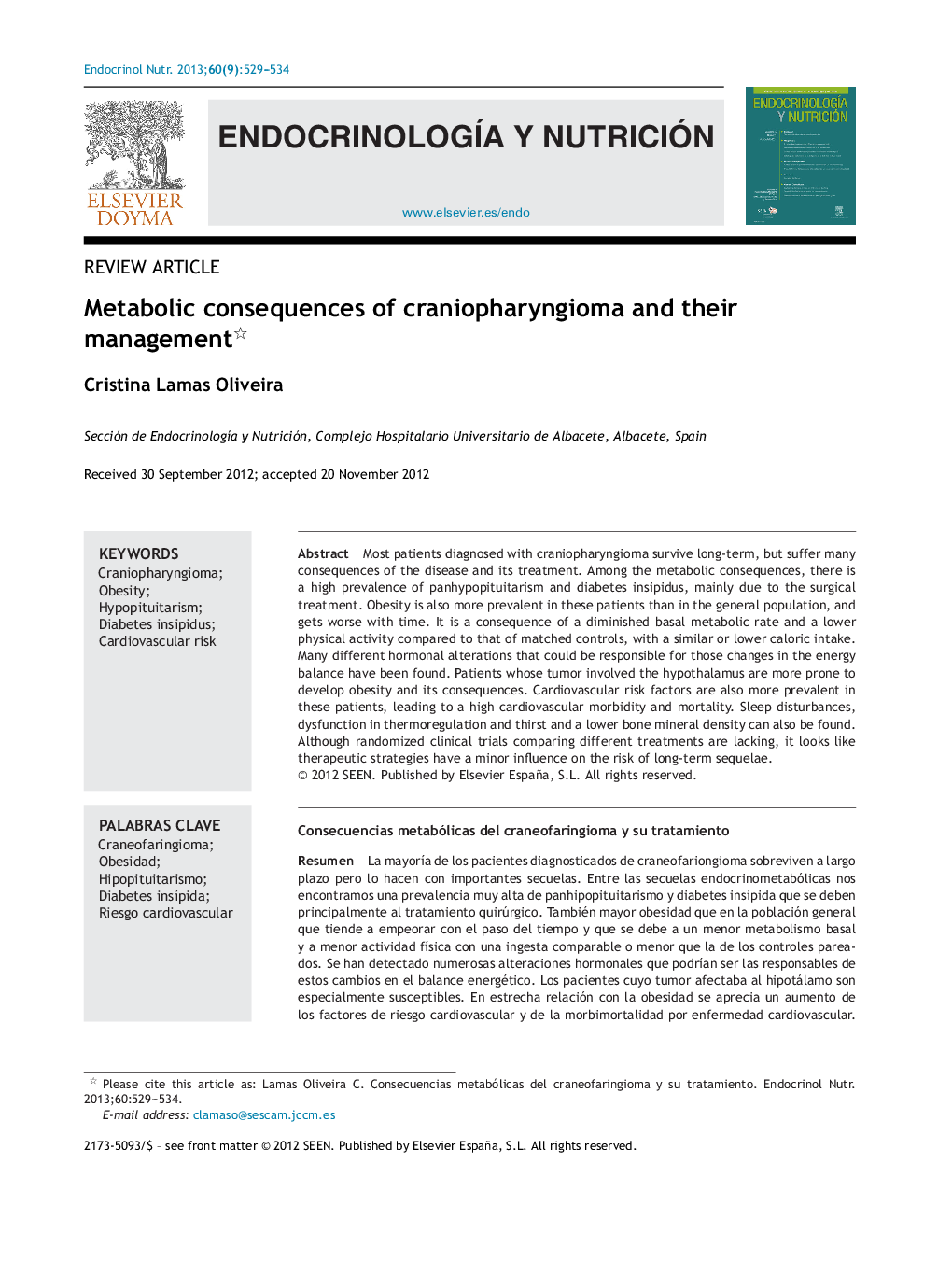| Article ID | Journal | Published Year | Pages | File Type |
|---|---|---|---|---|
| 3267114 | Endocrinología y Nutrición (English Edition) | 2013 | 6 Pages |
Most patients diagnosed with craniopharyngioma survive long-term, but suffer many consequences of the disease and its treatment. Among the metabolic consequences, there is a high prevalence of panhypopituitarism and diabetes insipidus, mainly due to the surgical treatment. Obesity is also more prevalent in these patients than in the general population, and gets worse with time. It is a consequence of a diminished basal metabolic rate and a lower physical activity compared to that of matched controls, with a similar or lower caloric intake. Many different hormonal alterations that could be responsible for those changes in the energy balance have been found. Patients whose tumor involved the hypothalamus are more prone to develop obesity and its consequences. Cardiovascular risk factors are also more prevalent in these patients, leading to a high cardiovascular morbidity and mortality. Sleep disturbances, dysfunction in thermoregulation and thirst and a lower bone mineral density can also be found. Although randomized clinical trials comparing different treatments are lacking, it looks like therapeutic strategies have a minor influence on the risk of long-term sequelae.
ResumenLa mayoría de los pacientes diagnosticados de craneofariongioma sobreviven a largo plazo pero lo hacen con importantes secuelas. Entre las secuelas endocrinometabólicas nos encontramos una prevalencia muy alta de panhipopituitarismo y diabetes insípida que se deben principalmente al tratamiento quirúrgico. También mayor obesidad que en la población general que tiende a empeorar con el paso del tiempo y que se debe a un menor metabolismo basal y a menor actividad física con una ingesta comparable o menor que la de los controles pareados. Se han detectado numerosas alteraciones hormonales que podrían ser las responsables de estos cambios en el balance energético. Los pacientes cuyo tumor afectaba al hipotálamo son especialmente susceptibles. En estrecha relación con la obesidad se aprecia un aumento de los factores de riesgo cardiovascular y de la morbimortalidad por enfermedad cardiovascular. Otras secuelas son las alteraciones del sueño, de la termorregulación, de la sed y una menor masa ósea. Aunque apenas existen estudios randomizados que comparen distintos tratamientos en el manejo del craneofaringioma, no parece que la actitud terapéutica sea determinante en la aparición de estas secuelas.
